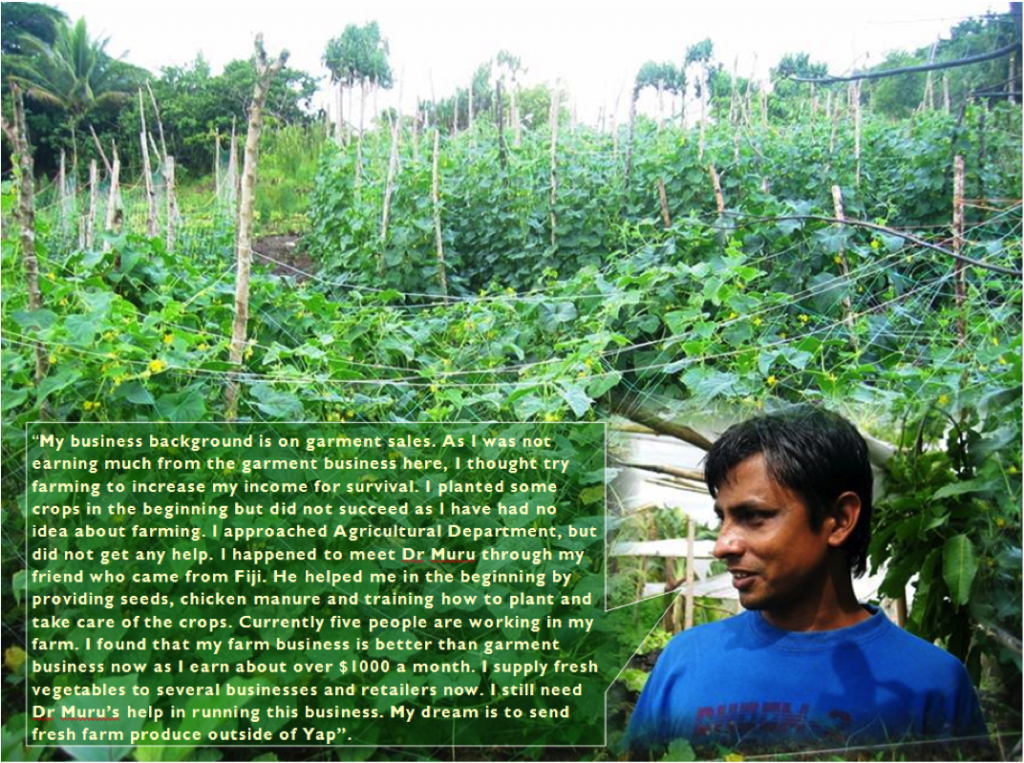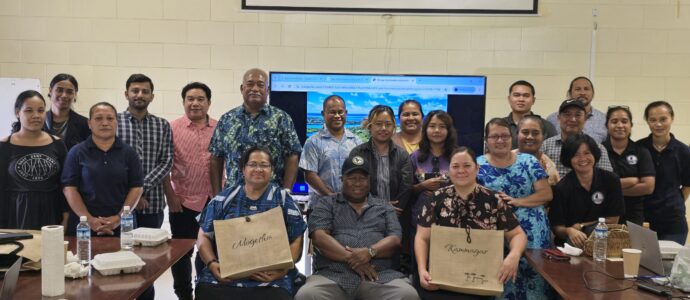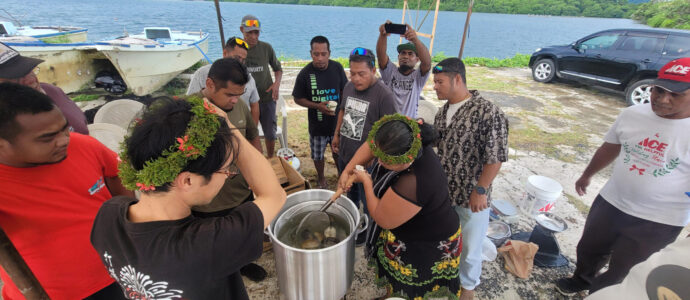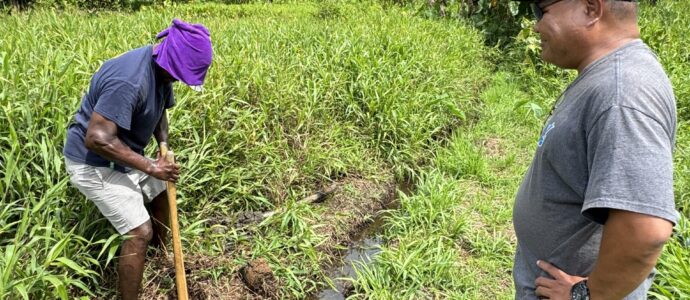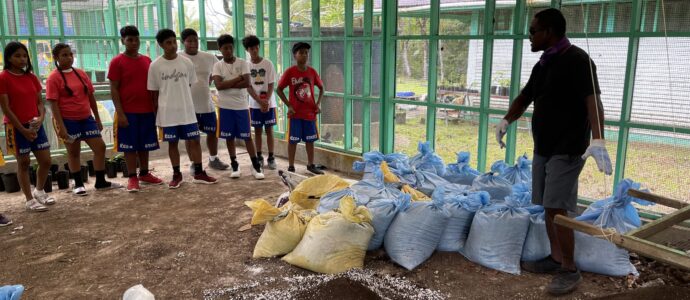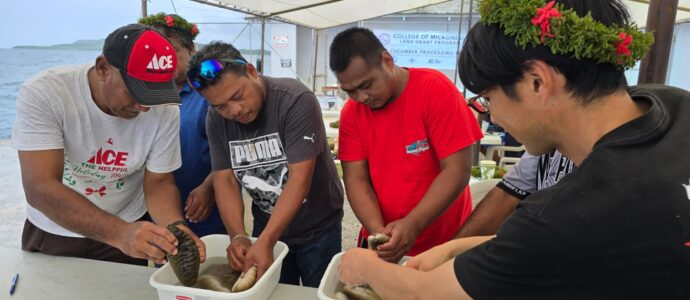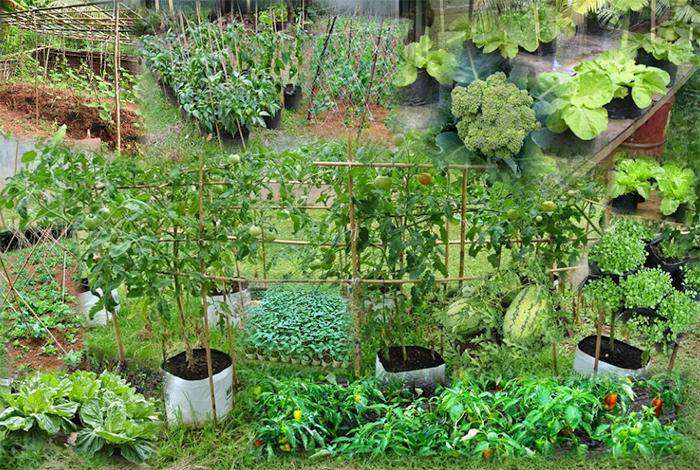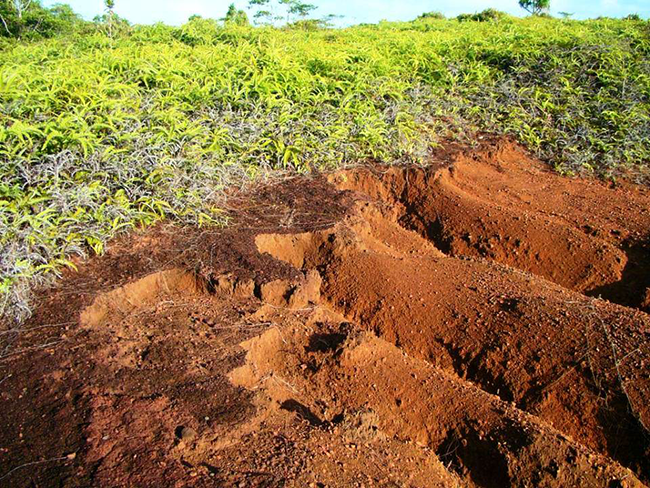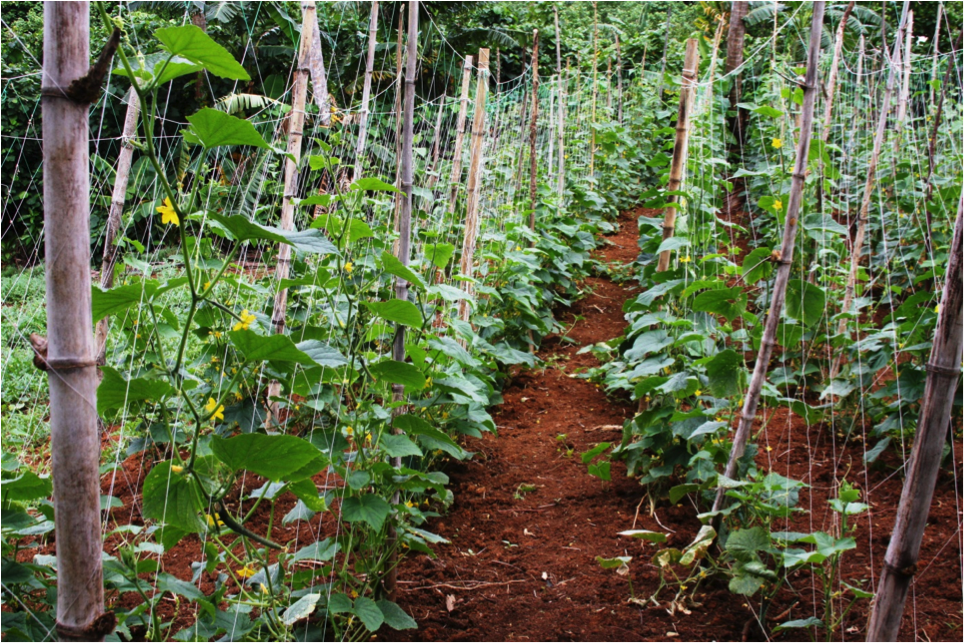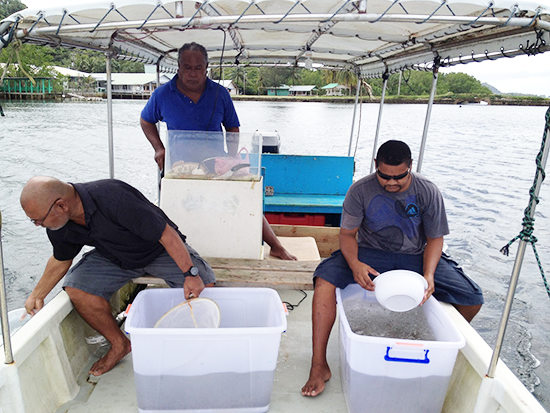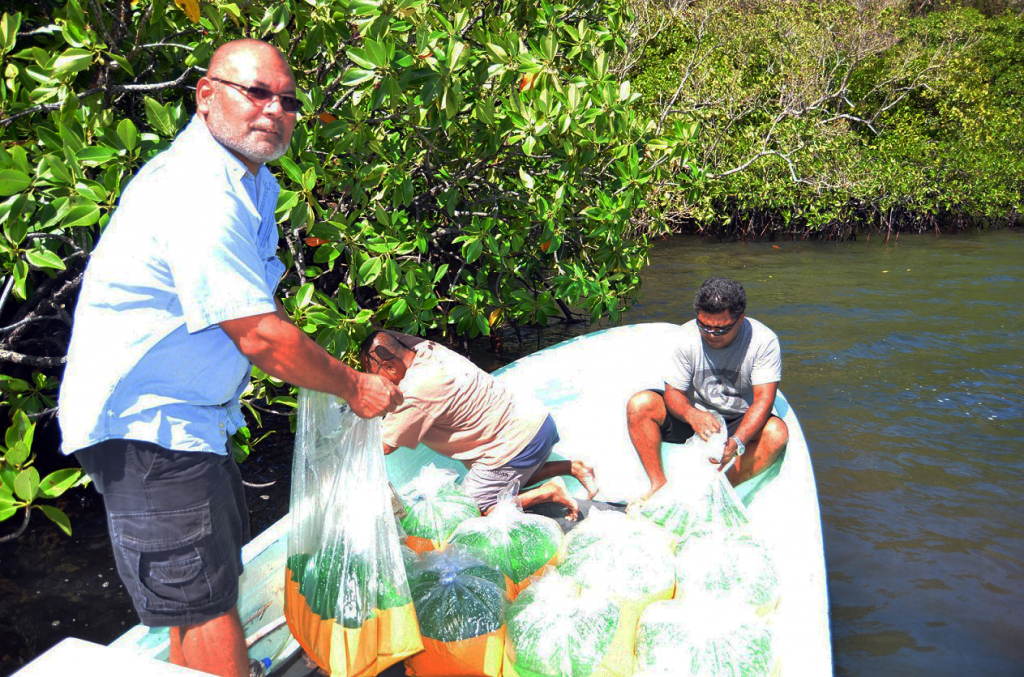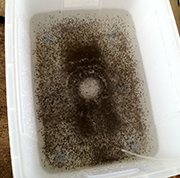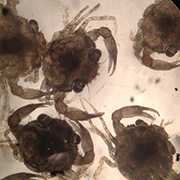COLONIA, YAP, FSM. Dr. Murukesan Krishnapillai, Researcher/Extension Specialist, Yap Agricultural Experiment Station.
Island Farm (Aringel village, Dalipebinaw Municipality, Yap) was established by a Bangladeshi immigrant in early 2009 as a vegetable garden for survival. Later, more crops were incorporated with technical assistance and extension support from Yap Agricultural Experiment Station. Over the years Yap AES provided several hands-on trainings on topics ranging from nursery management, nutrient management, pest management, soil preparation and composting. This small farm is now well established and catering local markets with vegetables like Chinese cabbage, eggplant, okra, cucumber, peppers, watermelon, long beans, sweet potato, tomatoes, pumpkins etc.
Impacts achieved
Thanks to the hard work and dedication of its owners, Island Farm showed a remarkable achievement in the last few years of operation. Success (impact) was measured in terms of income generated (cost-benefit ratio) from the farming operations. Client reports a gross sale of over USD 14,000.00 each year. Once a rare commodity, fresh garden produce is now within the reach of every household in Yap.
Owner Nadim Miah shares his views:
